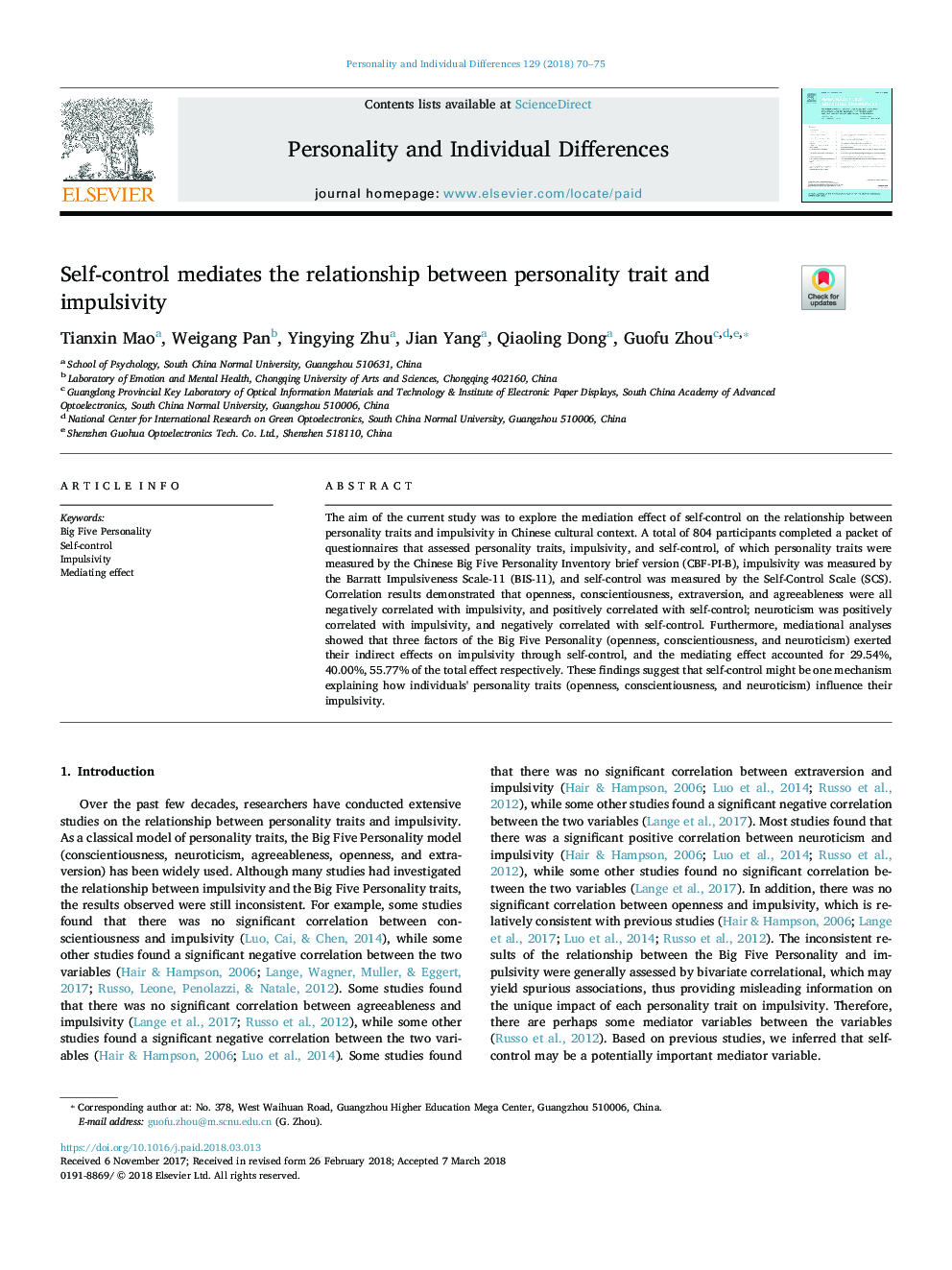| Article ID | Journal | Published Year | Pages | File Type |
|---|---|---|---|---|
| 7248714 | Personality and Individual Differences | 2018 | 6 Pages |
Abstract
The aim of the current study was to explore the mediation effect of self-control on the relationship between personality traits and impulsivity in Chinese cultural context. A total of 804 participants completed a packet of questionnaires that assessed personality traits, impulsivity, and self-control, of which personality traits were measured by the Chinese Big Five Personality Inventory brief version (CBF-PI-B), impulsivity was measured by the Barratt Impulsiveness Scale-11 (BIS-11), and self-control was measured by the Self-Control Scale (SCS). Correlation results demonstrated that openness, conscientiousness, extraversion, and agreeableness were all negatively correlated with impulsivity, and positively correlated with self-control; neuroticism was positively correlated with impulsivity, and negatively correlated with self-control. Furthermore, mediational analyses showed that three factors of the Big Five Personality (openness, conscientiousness, and neuroticism) exerted their indirect effects on impulsivity through self-control, and the mediating effect accounted for 29.54%, 40.00%, 55.77% of the total effect respectively. These findings suggest that self-control might be one mechanism explaining how individuals' personality traits (openness, conscientiousness, and neuroticism) influence their impulsivity.
Related Topics
Life Sciences
Neuroscience
Behavioral Neuroscience
Authors
Tianxin Mao, Weigang Pan, Yingying Zhu, Jian Yang, Qiaoling Dong, Guofu Zhou,
